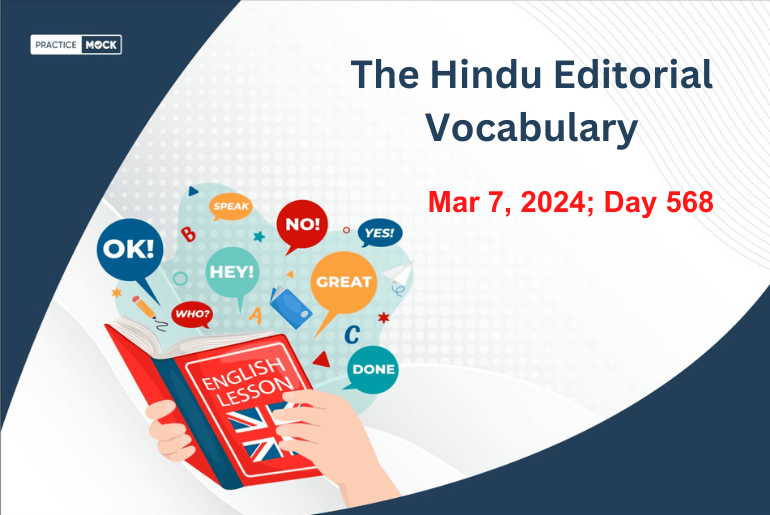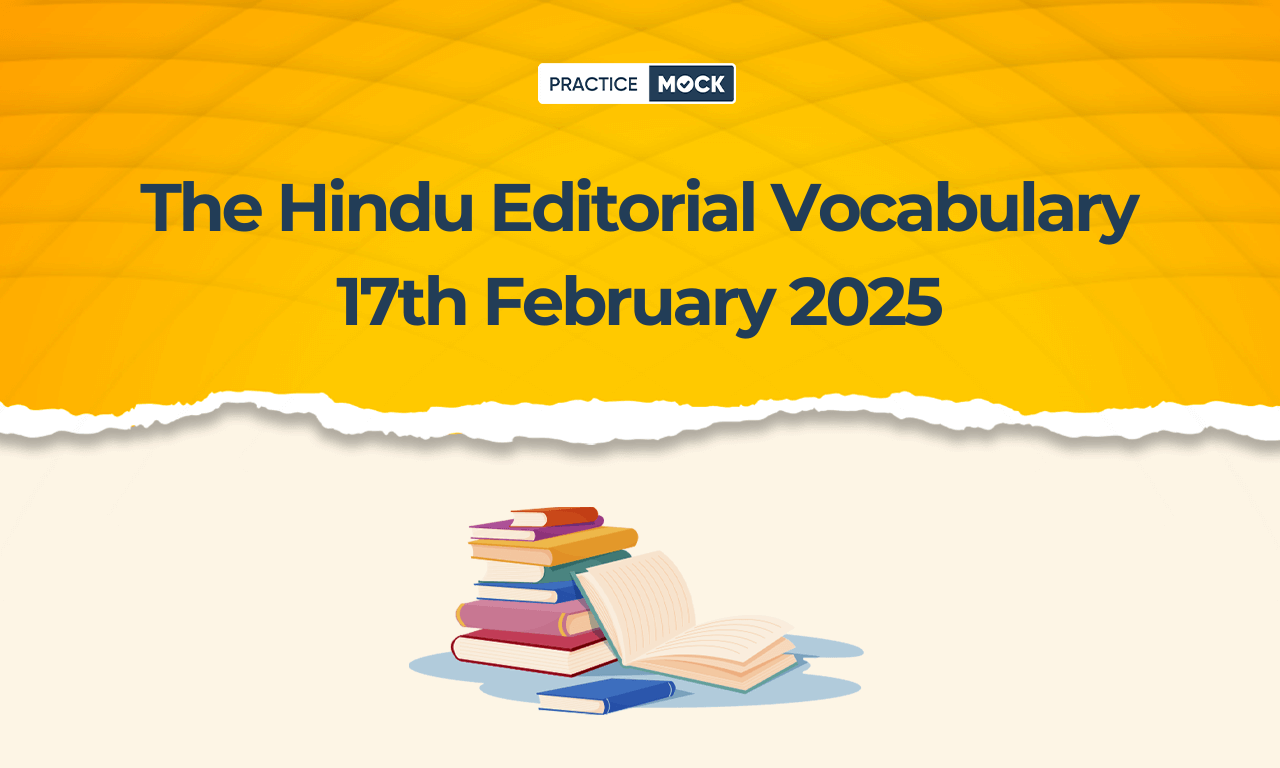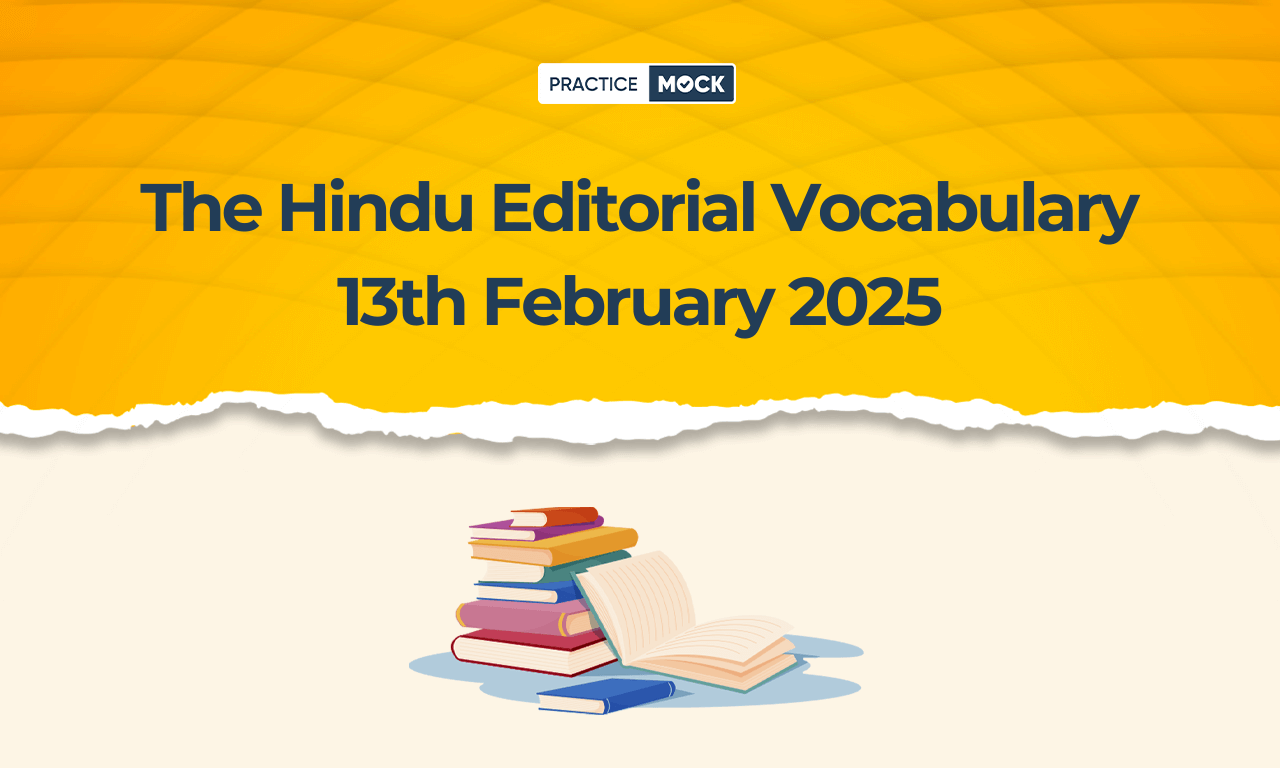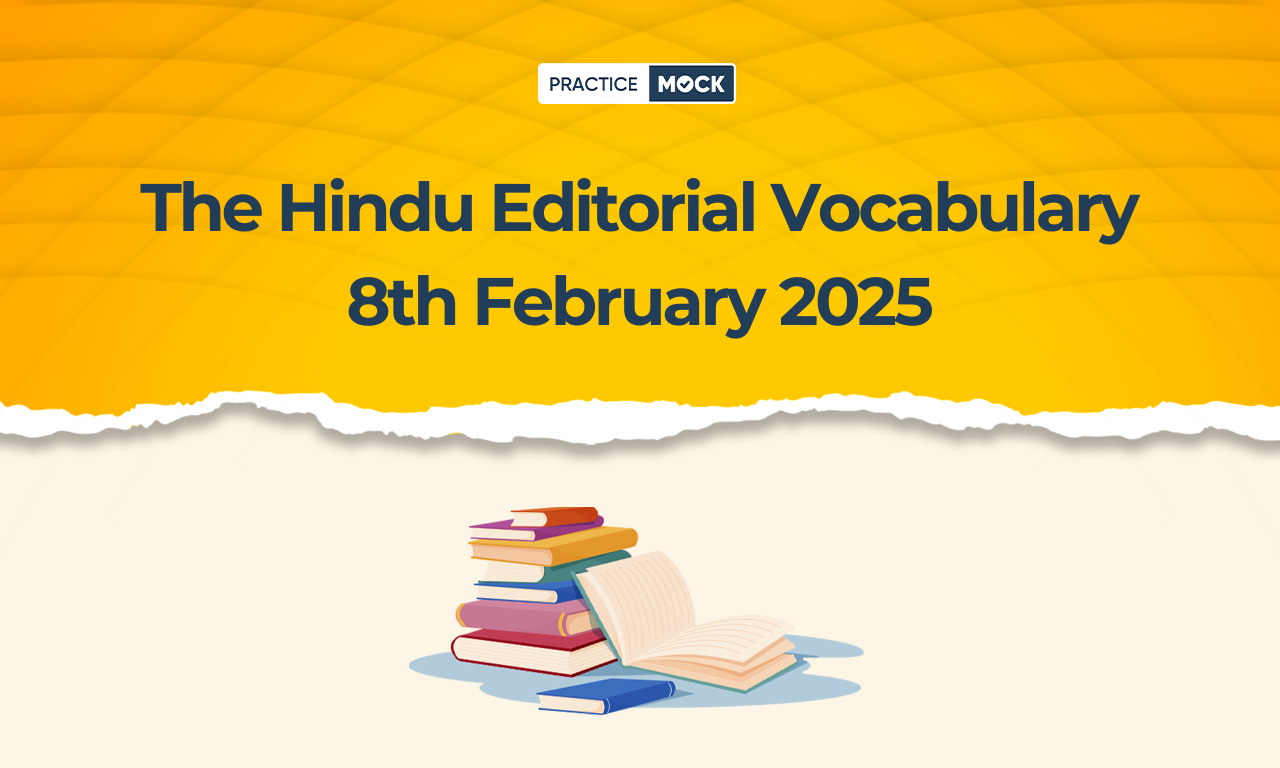The Hindu Editorial Vocabulary– March 7, 2024; Day 568


| Difficult Word/ Phrase | Contextual Sense |
| Distinction | A difference between two similar things |
| Prosecution | The act of taking part in a planned set of activities, especially a war |
| Constitutional | Allowed by or contained in a constitution |
| Protection | To keep someone or something safe from injury, damage, or loss |
| Privileges | An advantage that only one person or group of people has, usually because of their position or because they are rich |
| Rationale | The reasons or intentions that cause a particular set of beliefs or actions |
| Consequences | A result of a particular action or situation, often one that is bad or not convenient |
| Indignation | Anger about a situation that you think is wrong or not fair |
| Potential | Possible when the necessary conditions exist |
| Diminished | To reduce or be reduced in size or importance |
| Inducement | An act or thing that is intended to persuade someone or something |
Deprivileging bribe: On overruling the majority verdict in P.V. Narasimha Rao vs State
Voters should know that MPs do not act under monetary inducement
It was a judgment that has rankled for years. The artificial distinction (a difference between two similar things) that the Supreme Court of India made over 25 years ago between ‘bribe-givers’ and ‘bribe-takers’ in the infamous JMM bribery case left many aghast that those who paid crores of rupees to MPs for voting in favour of the P.V. Narasimha Rao government in a no-confidence motion were to be prosecuted for corruption, but those who took the money were immune from prosecution (the act of taking part in a planned set of activities, especially a war). The reason was that those who had voted for money enjoyed the constitutional (allowed by or contained in a constitution) privilege of not being subject to any legal consequence for “anything said or any vote given in Parliament”. There was one exception among the alleged bribe-takers: Ajit Singh, who was accused of taking a payoff, was to be prosecuted because he was absent during the voting, and was thus stripped of the protection (to keep someone or something safe from injury, damage, or loss) enjoyed by those who actually voted in terms of the bribery agreement. The Court has corrected this anomaly in the law related to parliamentary privileges (an advantage that only one person or group of people has, usually because of their position or because they are rich) by holding that there can be no immunity for a Member of Parliament or a State legislature against a bribery charge in connection with a vote or speech in the legislature. In overruling the majority verdict in P.V. Narasimha Rao vs State (CBI/SPE) (1998), a seven-member Constitution Bench has foregrounded probity as the main aspect of parliamentary functioning.
The Court has made it clear that parliamentary privilege, enshrined in Article 105 (for MPs) and Article 194 (for State legislators) is aimed at protecting the freedom of speech and independence of the legislators in their functioning in the House and cannot extend to bribery, as it is not essential to the casting of the vote or in deciding how to cast it. A key rationale (the reasons or intentions that cause a particular set of beliefs or actions) that weighed with the Constitution Bench in 1998 was that parliamentary privilege was essential to protecting members from persecution for anything said or any vote in the House. The majority feared that limiting this privilege might have serious consequences (a result of a particular action or situation, often one that is bad or not convenient) and felt that public indignation (anger about a situation that you think is wrong or not fair) over the conduct of some MPs accepting a bribe should not lead to the court construing the Constitution so narrowly that it removes the guarantee for effective parliamentary participation and debate. However, the seven-member Bench has concluded that the potential (possible when the necessary conditions exist) for such misuse is neither enhanced nor diminished (to reduce or be reduced in size or importance) by recognising the court’s jurisdiction to prosecute a member for bribery. The Bench has also held that voting in a Rajya Sabha election, being part of a legislator’s function, is protected under Article 194 of the Constitution as a privilege. It requires utmost protection for a member to vote freely and without fear of legal persecution. Overall, the verdict meets public expectation that the members they elect do not act under monetary inducement (an act or thing that is intended to persuade someone or something).
Unlock the power of words, one step further! Download the Lists of Word-Meanings of Previous Months here.
Recent Posts
PNB SO Admit Card 2025 Out, Check Specialist Officer Call Letter Link
The PNB SO Admit Card has been released on their official website. Candidates can check…
PNB SO Syllabus 2025, Check Industry, Credit, Specialist Officer Exam Pattern
Here we are providing the PNB SO Syllabus 2025 along with the detailed exam pattern.…
Bank Of India SO Recruitment 2025, Exam Date Out, Check Exam Schedule
The Bank of India SO Exam Date will be released on their official website. Candidates…
RRB Group D Previous Year Question Paper PDF in Hindi and English
In this blog, we have provided the RRB Group D Previous Year Question Paper with…
RBI Priority Sector Lending Guidelines 2025, Check PSL Revised Rules
Get exam-ready with key updates on RBI’s 2025 PSL guidelines—clear changes in credit flow, bank…
Expert Tips and Strategies to Master in RRB PO Reasoning Section
Here we are providing the expert Tips and Strategies to Master in RRB PO Reasoning…


